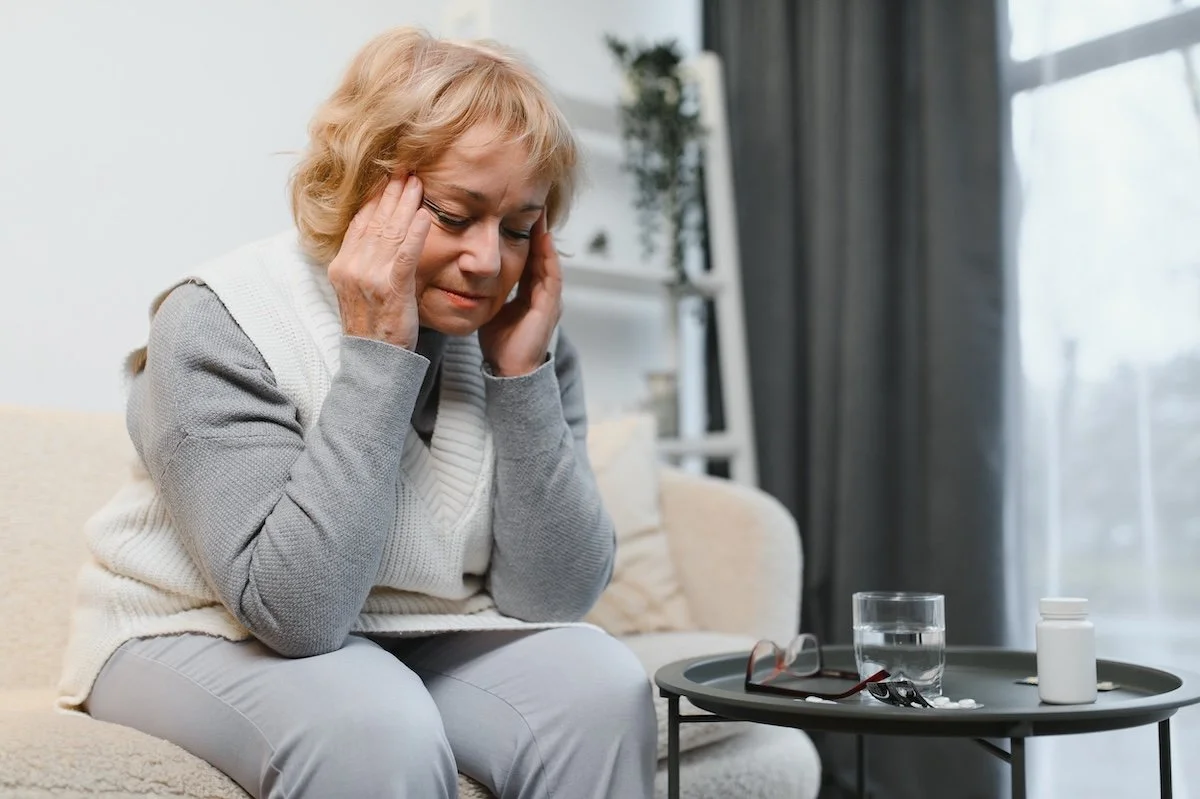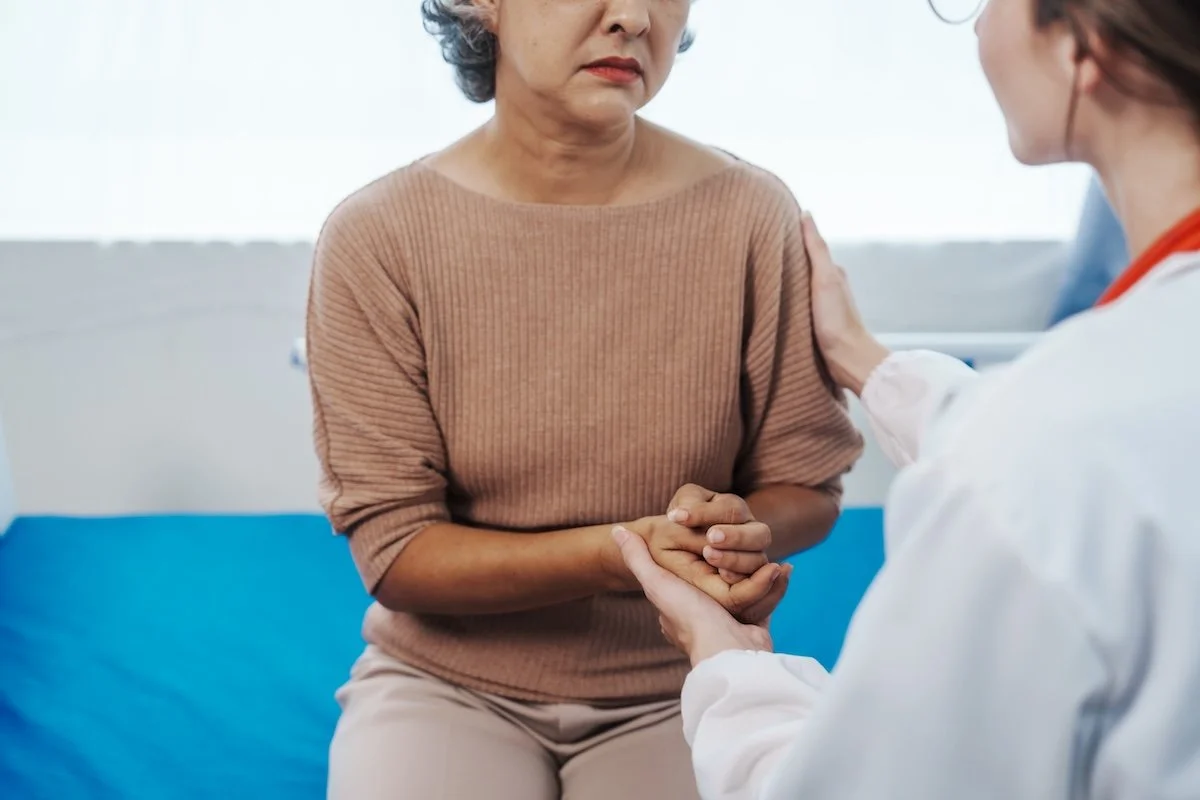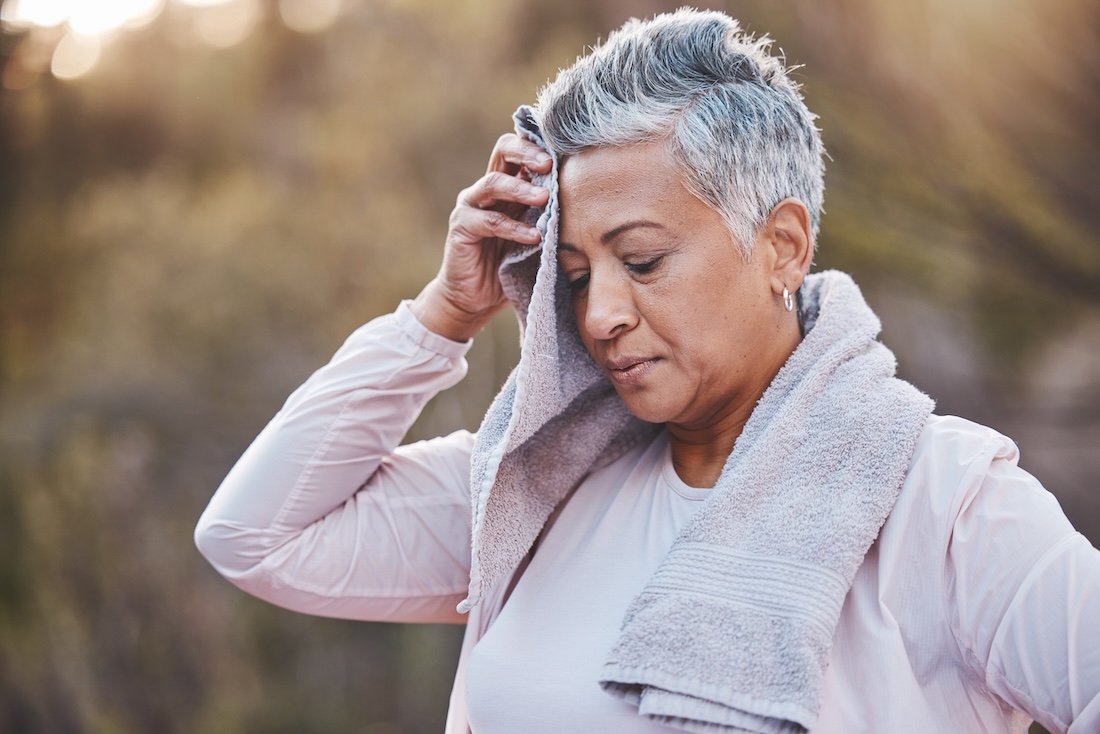Understanding Osteoporosis Risk After Menopause
For many women, bone health is not something they think much about until something goes wrong. A broken wrist from a minor fall or a sudden decrease in height often becomes the first real sign that something deeper is happening inside the body. By then, osteoporosis may already be present.
At Concierge Medicine of Westlake, we believe that protecting your bones is just as important as managing heart health, mental well-being, or hormone balance. Osteoporosis prevention begins well before the first fracture. Understanding how menopause affects bone health allows women to take action early, preserving strength, mobility, and independence for years to come.
The Link Between Menopause and Bone Loss
Bone is living tissue. Throughout life, the body continuously breaks down old bone and builds new bone. In youth and early adulthood, the process of bone formation exceeds the rate of bone resorption. Peak bone mass typically occurs by the late twenties or early thirties.
After that point, bone remodeling becomes a slower, more delicate balance. When women reach menopause, the decline in estrogen accelerates bone loss significantly. Estrogen plays a critical role in maintaining bone density. It inhibits the cells that break down bone and supports the activity of cells that build bone.
When estrogen levels fall during menopause, the brakes come off the bone resorption process. Women can lose up to 20 percent of their bone density in the five to seven years following menopause. This loss dramatically increases the risk for osteoporosis, a condition where bones become weak, porous, and vulnerable to fractures.
Common areas affected by osteoporosis include:
The spine, leading to vertebral fractures and height loss
The hips, with fractures that can severely impact mobility
The wrists, often the first sign of bone weakening after a minor fall
Recognizing the connection between menopause and bone loss is the first step toward prevention.
Why Early Screening Matters
Waiting until a fracture occurs to evaluate bone health is a missed opportunity for prevention. A bone density test, also called a DXA scan, is a simple, non-invasive way to measure bone strength and detect osteoporosis early.
The National Osteoporosis Foundation recommends that:
Women should have a bone density test at age 65
Postmenopausal women under 65 with risk factors should also be screened
Risk factors include family history, low body weight, smoking, excessive alcohol use, and early menopause
At Concierge Medicine of Westlake, we often recommend that women consider a baseline DXA scan soon after menopause, especially if they have additional risk factors. Early detection allows for more time to implement strategies to protect bone mass and reduce fracture risk.
A DXA scan provides a T-score that compares bone density to that of a healthy young adult. Based on the results, interventions can range from lifestyle modifications to medications aimed at slowing or reversing bone loss.
Osteoporosis Prevention Strategies
Preventing osteoporosis is a multi-faceted approach that begins well before fractures occur. Even women who have already experienced bone loss can take meaningful steps to preserve and rebuild bone strength.
Calcium and Vitamin D Support:
Calcium is essential for building and maintaining strong bones. After menopause, women need about 1,200 milligrams of calcium daily. Vitamin D supports calcium absorption and bone mineralization. Without enough vitamin D, even a calcium-rich diet will not be fully effective. Sun exposure, fortified foods, and supplements can all contribute to maintaining adequate vitamin D levels.
Resistance and Weight-Bearing Exercise:
Exercise is one of the most powerful tools for osteoporosis prevention. Weight-bearing activities like walking, hiking, and dancing stimulate bone remodeling. Resistance training strengthens muscles and bones simultaneously. Even light strength exercises done consistently can help maintain or improve bone density.
Lifestyle Choices:
Avoiding smoking and limiting alcohol intake are crucial for bone health. Smoking accelerates bone loss, while heavy alcohol use interferes with the body's ability to absorb calcium and maintain healthy bone structure.
Hormone Evaluation and Management:
For some women, hormone therapy after menopause may help preserve bone density. Estrogen therapy is not right for everyone, but for women who are good candidates, it can slow the accelerated bone loss that occurs after menopause.
At Concierge Medicine of Westlake, we offer personalized counseling on hormone therapy and alternative bone health strategies. Every woman's needs are different, and the best approach is one that considers her full medical history and personal goals.
How Concierge Care Elevates Bone Health Protection
Managing bone health properly takes time, detailed evaluation, and thoughtful planning. In the traditional healthcare model, conversations about osteoporosis often get rushed or delayed until after a problem arises.
Through our concierge model, we offer:
Ample time to assess bone health risk factors
Comprehensive lifestyle and nutritional counseling
Early screening and regular monitoring
Personalized exercise recommendations
Coordination with specialists when needed
Ongoing support for prevention and treatment planning
Dr. Alexa Fiffick is committed to helping women stay ahead of bone loss and preserve their quality of life. In a concierge setting, we have the opportunity to focus on prevention rather than crisis management, creating a proactive and empowering approach to health.
Strengthening Your Future, One Step at a Time
Bone health is foundational to living a full, active life in your 50s, 60s, and beyond. Menopause marks a turning point in bone remodeling, but it is not the end of the story. With early screening, consistent prevention strategies, and a strong healthcare partnership, women can protect their bones and continue moving confidently through every stage of life.
At Concierge Medicine of Westlake, we are here to help you strengthen your future. Whether you are approaching menopause, newly postmenopausal, or concerned about your risk for osteoporosis, we invite you to take action today.
Schedule a consultation with Dr. Alexa Fiffick to learn more about bone health screening, prevention strategies, and personalized care that supports your wellness at every age. Your bones are your foundation. Let us help you keep them strong.

























